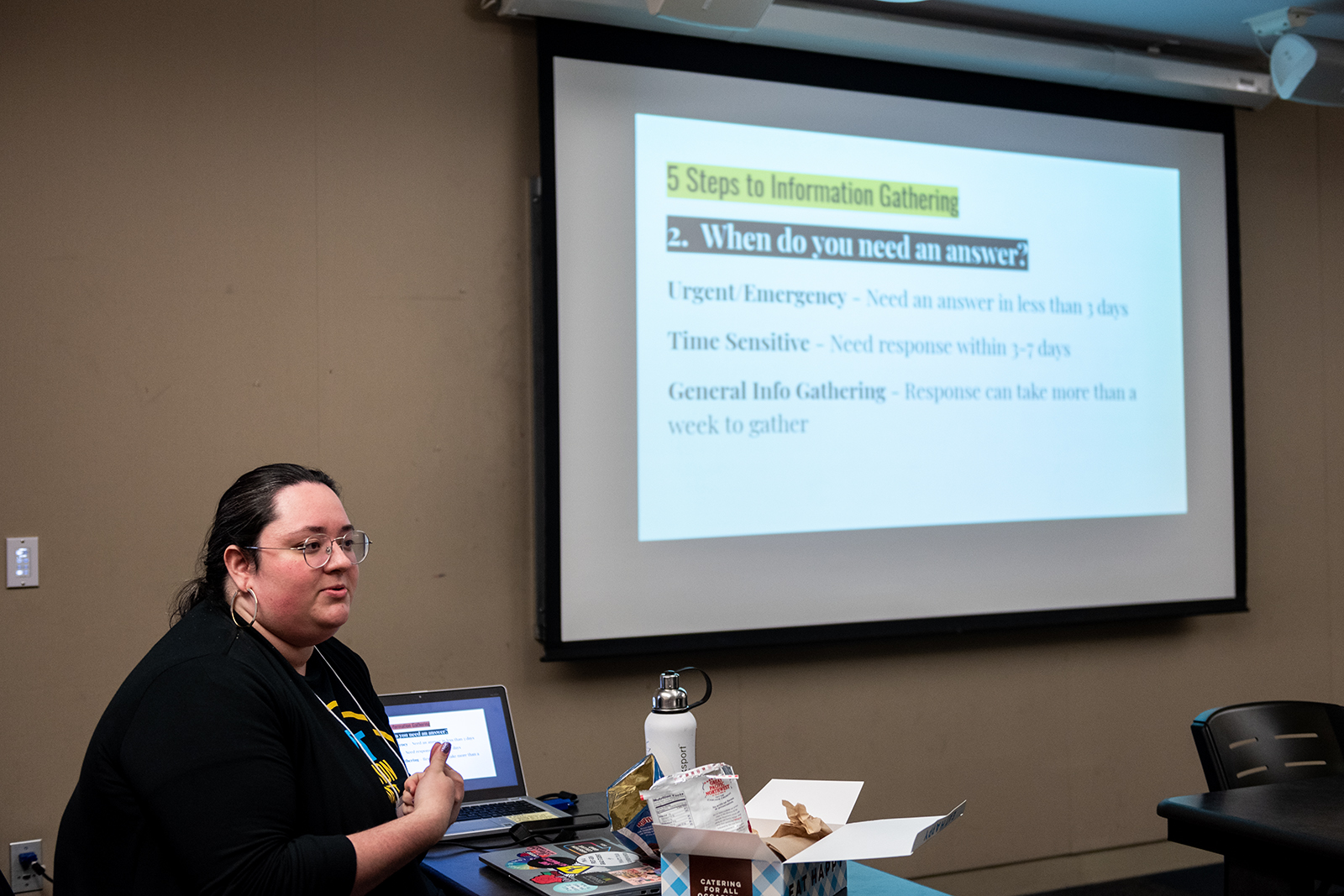Presentation discusses campus resources for First-Generation Awareness Week

Letty Treviño, a first-generation consultant on the programming committee for the Graduate Student Resource Center, led a student resources workshop Thursday, at the end of First-Generation Awareness Week. (Marilyn Chavez-Martinez/Daily Bruin senior staff)

By Samantha Fredberg
Feb. 2, 2020 6:18 p.m.
Members of the Graduate Student Resource Center held a presentation Jan. 30 raising awareness of underutilized campus resources across financial, career and discrimination services as First-Generation Awareness Week came to a close.
Letty Treviño, a first-generation consultant on the programming committee for GSRC, led the presentation. She discussed strategies for becoming informed and campus resources available to students.
Treviño said institutions like UCLA are not designed with first-generation students in mind, so it is important to know how to navigate them.
“In the real world, there aren’t resource centers, there aren’t free services, and there aren’t any free programs, so while you’re a student, you should take advantage of everything that’s available to you,” said Treviño, a fourth-year graduate student in Spanish and Portuguese.
While many resources on campus are marketed toward undergraduate students, they are also available to graduate students, something not commonly known, Treviño said.
There are different resources across campus for each need, Treviño said. All emergencies should be directed to university police, but for all other issues, concerns and support, there are a variety of options.
Economic difficulties are common among graduate students, Treviño said.
Students in economic or personal crisis should reach out to the UCLA Consultation and Response team, Treviño said. The Economic Crisis Response Team helps students with financial troubles by providing meal vouchers, short-term loans and financial planning to help make money.
Additional financial support can be found in the UCLA Graduate Division and the Financial Wellness Program, she said.
Career and professional support can be found within the UCLA Career Center, which houses workshops across campus, one-on-one appointments and digital resources such as Handshake, ImaginePhD and the Career Preparation Toolkit, which students can use to discover what type of career they want and find jobs.
Instances of discrimination and sexual assault can be reported to various centers on and off campus, including the Title IX office, Dean of Students and Campus Assault Rescources and Education Center, which is confidential, Treviño said.
Treviño said that another underutilized resource is the variety of free workshops across departments at UCLA.
Many graduate students aren’t aware of these resources, said Elaine Owusu, who studies public health.
Owusu said she thinks resources on campus are not made public. She would not have known about most of the resources if she had not attended the information session, she added.
“A lot of us feel uncomfortable asking for help because it makes us feel like we’re creating work for someone,” Treviño said.
Services across UCLA are included in graduate student fees, so students are paying for them whether they take advantage of them or not, Treviño said.
Estefania Morales, a graduate student in Spanish and Portugese, said she was surprised to hear about the number of resources available.
“It shows that they care about us,” she said. “I need to take more advantage of them.”
After attending the information session, Owusu said she will attend a workshop about coding.
“Not everybody has the chance to do that if it’s not your field,” she said.


